Since its establishment in 2017, Syed Ahsan Ali & Syed Maratib Ali School of Education (SOE) has actively expanded its undergraduate programme.
This has led to the introduction of four minors for undergraduate students: Minor in Education; Minor in Education Policy, Politics, and Governance; Minor in Curriculum, Instruction, and Assessment; and Minor in Inclusive Education. These minors facilitate undergraduate students in diversifying their learning experiences by immersing them in education discourse. Students are provided opportunities to develop a deeper and comprehensive understanding of various education-related topics like social justice in education, teaching and learning strategies, education policy and practice, educational technology, inclusive education, and a host of other pressing and contemporary topics and issues in education. Bridging research, policy, and practice, the undergraduate curriculum integrates academic knowledge with field-based learning in the field of education. To provide practical exposure, SOE partners with various organizations to provide opportunities to students to actively engage with and contribute to addressing and solving issues within the education ecosystem. The varied courses in the four minors are designed to provide students with a solid foundation for understanding multifaceted dimensions in the education sector.
The course content is developed with an interdisciplinary mix whereby it draws upon economic, political, social, cultural, and philosophical perspectives to examine fundamental aspects of education, such as equity, reform, inclusivity, diversity, accountability, policy, and advocacy. As students explore these perspectives, they gain insights into the core challenges faced by educators and policymakers in both national and international settings. Towards that end, these minors encourage students to analyze and propose solutions to the current issues and challenges stemming from the complexity surrounding education policy and practice.
1. Minor in Education
The undergraduate minor in Education provides students with a broad foundation in key educational theories, philosophies, and debates. The minor engages students in the social, cultural, and historical dimensions of education across diverse contexts.
1.1. Course and Credit Hours Distribution:
To complete this minor, students must accumulate a minimum of 18 credit hours in the area of education and secure a cumulative GPA of 2.75 in the selected courses.
Students should successfully complete a minimum of six regular courses (two core courses and four electives) in the area of education. Of the four electives, at least three should be at the 300 level or above.
Students pursuing a minor in Education are expected to comply with all university-wide policies and regulations outlined under the Undergraduate Programme Policies and Regulations section of this Handbook.
1. The following two courses are core requirements for this minor (6 credits):
| CODE | TITLE | CREDITS |
| EDU 210 | Critical Debates in Education | 3 |
| EDU 213 | Philosophy of Education | 3 |
2. The remaining 12 credits (or more) for the minor in Education may be completed by taking a combination of the following elective courses, in accordance with the rules stated above:
| CODE | TITLE | CREDITS |
| EDU 212 | Sociology of Education | 4 |
| EDU 215 | Ethics and Education | 3 |
| EDU 216 | Globalization and Language | 3 |
| EDU 218 | Education and International Development - Concepts, Theories, and Issues | 3 |
| EDU 220 | Curriculum, Teaching and Learning | 3 |
| EDU 222 | The Learning Gap: Critical Issues in Educational Psychology | 4 |
| EDU 223 | Trauma-Informed Education Systems: Creating Cultures of Support and Change | 3 |
| EDU 224 | Theories of Child & Adolescent Development in Education | 3 |
| EDU 225 | Motivation and Learning | 3 |
| EDU 226 | The Business of Daycare | 3 |
| EDU 250 | Education in the Pakistani Context | 3 |
| EDU 252 | Contemporary Social Policy Issues in Pakistan | 3 |
| EDU 262 | Creating Elites and Delinquents | 3 |
| EDU 263 | Quantitative Research Methods | 3 |
| EDU 272 | Educations, Schools and Violence | 3 |
| EDU 273 | Education, Media and Culture | 3 |
| EDU 274 | Gender Media and Education | 3 |
| EDU 312 | Politics of Education | 3 |
| EDU 313 | Education for Social Justice | 3 |
| EDU 314 | Education and Development | 3 |
| EDU 315 | Education in Globalized World | 3 |
| EDU 316 | Introduction to the Arts in Education | 3 |
| EDU 317 | Civic Engagement and Global Citizenship Education | 3 |
| EDU 318 | Introduction to the Arts in Education in South Asia | 3 |
| EDU 319 | Debating Education Reforms in Pakistan | 3 |
| EDU 3102 | Exploring [Cultural] Diversity Through the Arts in Education | 3 |
| EDU 3103 | Educational Inequalities in South Asia | 3 |
| EDU 321 | Inclusive Pedagogy: Rethinking Teaching, Learning and Assessment | 3 |
| EDU 322 | Computers, Problem Solving and Cooperative Learning | 3 |
| EDU 323 | Demonstrative Teaching of Science and Math | 3 |
| EDU 324 | Effective Teaching and Learning in Higher Education | 3 |
| EDU 325 | The (Instructional) Core and How to Work it | 3 |
| EDU 326 | Foundations of Education Technology | 3 |
| EDU 327 | Technology and Culture | 3 |
| EDU 328 | Educational Technology and the Learning Sciences | 3 |
| EDU 329 | Technology in Educational Environments | 3 |
| EDU 3202 | Train the trainer: Fundamentals of Facilitation for Adult Learners | 3 |
| EDU 3203 | Designing Immersive Learning Experiences: Student-Centered Instructional Skills Training | 3 |
| EDU 3204 | Enhancing Inclusion: Exploring Autism & Intellectual Disability | 3 |
| EDU 3205 | Removing Barriers to Learning in the Classroom | 3 |
| EDU 3207 | Socio-Emotional Learning | 3 |
| EDU 3208 | Beyond the Test: Assessment for Learning | 3 |
| EDU 3209 | Mindfulness and Resilience | 3 |
| EDU 3212 | Transforming Teaching and Learning through Student-Faculty Partnership | 3 |
| EDU 3214 | Slow Looking: The Practice of Learning through Careful Observation | 3 |
| EDU 3215 | Understanding Diversity in Disability | 3 |
| EDU 3216 | AI and the future of Education and Work | 3 |
| EDU 342 | Entrepreneurship and Innovation in Education | 3 |
| EDU 343 | Leadership Beyond Schools | 3 |
| EDU 344 | Entrepreneurship in Education |
|
| EDU 345 | Practicing Leadership | 3 |
| EDU 346 | Cultivating Authentic Leadership: A journey into Self-Discovery | 3 |
| EDU 352 | Education Policy Analysis | 3 |
| EDU 353 | Education and Conflict | 3 |
| EDU 354 | Comparative & International Education | 4 |
| EDU 355 | Education and Sustainable Development | 3 |
| EDU 356 | Education Policy and Practice for Development | 3 |
| EDU 357 | Planning for Education Development | 3 |
| EDU 358 | Sustainable Educational Development | 3 |
| EDU 362 | Monitoring and Evaluation in Public Policy | 3 |
| EDU 363 | Could Education be Bad for Society? | 3 |
| EDU 364 | Ethnography of Education | 3 |
| EDU 372 | Mobile Lives: Im/migration and Education | 3 |
| EDU 412 | Economics of Education | 3 |
| EDU 413 | What Does it Mean ‘to be Educated’? | 3 |
| EDU 422 | Behavior Analysis for Effective Teaching | 3 |
| EDU 423 | Theory and Policy for Teacher Education | 3 |
| EDU 424 | Embodied Knowing: Slow looking, Emotional Awareness and Somatic Observation |
|
| EDU 425 | South Asia from the Margins: Culture and Art Education Among Distant Neighbours | 3 |
| EDU 426 | Pedagogy: Intersections of the Taught, Written, and Assessed Curriculum | 3 |
| EDU 427 | STEM Teaching in the AI Era | 3 |
| EDU 453 | Politics of Education Reform | 3 |
2. Minor in Education Policy, Politics and Governance
This minor provides a strong foundation in education policy, political processes, and governance structures shaping implementation.
2.1. Course and Credit Hours Distribution:
To complete this minor, students must accumulate a minimum of 18 credit hours in this Minor and secure a cumulative GPA of 2.75 in the selected courses.
Students should successfully complete a minimum of six regular courses (two core courses and four electives) in that area. Of the four electives, at least three should be at the 300 level or above.
Students pursuing a minor in Education Policy, Politics, and Governance are expected to comply with all university-wide policies and regulations outlined under the Undergraduate Programme Policies and Regulations section of this Handbook.
1. The following two courses are core requirements for this minor (6 credits):
| CODE | TITLE | CREDITS |
| EDU 210 | Critical Debates in Education | 3 |
| EDU 352 | Education Policy Analysis | 3 |
2. The remaining 12 credits (or more) for the minor in Education Policy, Politics, and Governance may be completed by taking a combination of the following elective courses, in accordance with the rules stated above:
| CODE | TITLE | CREDITS |
| EDU 213 | Philosophy of Education | 3 |
| EDU 250 | Education in the Pakistani Context | 3 |
| EDU 3103 | Educational Inequalities in South Asia | 3 |
| EDU 315 | Education in Globalized World | 3 |
| EDU 353 | Education and Conflict | 3 |
| EDU 356 | Education Policy and Practice for Development | 3 |
| EDU 363 | Could Education be Bad for Society? | 3 |
| EDU 372 | Mobile Lives: Im/migration and Education | 3 |
| EDU 412 | Economics of Education | 3 |
| EDU 453 | Politics of Education Reform | 3 |
3. Minor in Curriculum, Instruction and Assessment
Minor in Curriculum, Instruction and Assessment emphasizes both theoretical and practical aspects of curriculum design, instructional methods, and pedagogy.
3.1. Course and Credit Hours Distribution:
To complete this minor, students must accumulate a minimum of 18 credit hours in this minor and secure a cumulative GPA of 2.75 in the selected courses.
Students should successfully complete a minimum of six regular courses (two core courses and four electives) in that area. Of the four electives, at least three should be at the 300 level or above.
Students pursuing a minor in Curriculum, Instruction, and Assessment are expected to comply with all university-wide policies and regulations outlined under the Undergraduate Programme Policies and Regulations section of this Handbook.
1. The following two courses are core requirements for this minor (6 credits):
| CODE | TITLE | CREDITS |
| EDU 224 | Theories of Child & Adolescent Development in Education | 3 |
| EDU 426 | Pedagogy: Intersections of the Taught, Written, and Assessed Curriculum | 3 |
2. The remaining 12 credits (or more) for the minor in Curriculum, Instruction and Assessment may be completed by taking a combination of the following elective courses, in accordance with the rules stated above:
| CODE | TITLE | CREDITS |
| EDU 213 | Philosophy of Education | 3 |
| EDU 220 | Curriculum, Teaching and Learning |
|
| EDU 222 | The Learning Gap – Critical Issues in Educational Psychology | 3 |
| EDU 225 | Motivation and Learning | 3 |
| EDU 325 | The (Instructional) Core and How to Work | 3 |
| EDU 3208 | Beyond the Test: Assessment for Learning | 3 |
| EDU 3205 | Removing Barriers to Learning in the Classroom | 3 |
| EDU 324 | Effective Teaching and Learning in Higher Education | 3 |
| EDU 3203 | Designing Immersive Learning Experiences: Student-Centered Instructional Skills Trainings | 3 |
| EDU 3214 | Slow Looking: The Practice of Learning through Careful Observation | 3 |
| EDU 3216 | AI and the Future of Work and Education | 3 |
4. Minor in Inclusive Education
Inclusive Education minor provides students with a comprehensive understanding of both the theoretical foundations and practical aspects of inclusive education. This stream equips students them with the knowledge and skills needed to develop and implement inclusive curricula, pedagogy, and school cultures.
4.1. Course and Credit Hours Distribution:
To complete this minor, students must accumulate a minimum of 18 credit hours in this minor and secure a cumulative GPA of 2.75 in the selected courses.
Students should successfully complete a minimum of six regular courses (two core courses and four electives) in that area. Of the four electives, at least three should be at the 300 level or above.
Students pursuing a minor in Inclusive Education are expected to comply with all university-wide policies and regulations outlined under the Undergraduate Programme Policies and Regulations section of this Handbook.
1. The following two courses are core requirements for this minor (6 credits):
| CODE | TITLE | CREDITS |
| EDU 321 | Inclusive Pedagogy: Rethinking Teaching, Learning, and Assessment | 3 |
| EDU 3215 | Understanding Diversity in Disability | 3 |
2. The remaining 12 credits (or more) for the minor in Inclusive Education may be completed by taking a combination of the following elective courses, in accordance with the rules stated above:
| CODE | TITLE | CREDITS |
| EDU 213 | Philosophy of Education | 3 |
| EDU 223 | Trauma-Informed Education Systems: Creating Cultures of Support and Change | 3 |
| EDU 224 | Theories of Child & Adolescent Development in Education | 3 |
| EDU 272 | Educations, Schools and Violence | 3 |
| EDU 313 | Education for Social Justice | 3 |
| EDU 3102 | Exploring [Cultural] Diversity Through the Arts in Education | 3 |
| EDU 3204 | Enhancing Inclusion: Exploring Autism & Intellectual Disability | 3 |
| EDU 3205 | Removing Barriers to Learning in the Classroom | 3 |
| EDU 3207 | Socio-Emotional Learning | 3 |
| EDU 353 | Education and Conflict | 3 |
| EDU 372 | Mobile Lives: Im/migration and Education | 3 |
| EDU 422 | Behavior Analysis for Effective Teaching | 3 |
| EDU 424 | Embodied Knowing: Slow Looking, Emotional Awareness and Somatic Observation | 3 |
| EDU 425 | South Asia from the Margins: Culture and Art Education Among Distant Neighbors | 3 |
General Rules
The following rules apply to all minors offered by the School of Education (SOE):
- Students intending to complete a minor should successfully complete a minimum of six regular courses, carrying 3 credits each (totaling 18 credit hours), through a combination of required core and elective courses.
- Senior Projects, Independent Studies, or courses carrying fewer than 3 credits do not count towards the minor. Students may, however, enroll in directed coursework under the EDU code, such as Independent Study or Directed Research (1–2 credit hours), under the supervision of an SOE faculty member. These are graded on a Pass/Fail basis and do not fulfill minor requirements.
- A minimum GPA of 2.75 must be attained in the courses counted toward the minor.
- At least three electives used to fulfill the minor requirements must be at the 300 level or above.
- University core courses: Writing & Communication, Pakistan Studies, and Islamic Studies cannot contribute towards the minor.
- Among the courses that satisfy the In-Group and Out-Group requirements, no more than one can be used to fulfil the minor requirements.
- A course that is cross listed with another discipline may count toward either a major or a minor, but not both. Students intending to count a cross-listed course toward a minor must enroll under the course code specified in the approved list of minor courses. Only the enrolled course code will be considered for minor requirement purposes.
- At the beginning of each semester, a steering committee comprising SOE faculty will convene to approve the updated list of elective courses for each minor.
- A steering committee comprising of SOE faculty will convene at the start of every semester to approve updated elective courses.
- Pass/Fail courses do not count towards fulfilment of a minor.
- The minor requirements can be completed within the credit limit of 130/138 by following a carefully chalked course plan and by taking appropriate courses as free electives to count towards the minor. These students might need to take additional credit hours for the completion of the minor requirements.
- The minor will only be displayed on the final transcript, NOT on the degree.
- The minor is a look back option and should be declared only at the time of graduation, once the graduation requirements are fulfilled, by submitting the minor form available at https://zambeel.lums.edu.pk . A student cannot declare a minor once the GAF has been submitted as the transcript is already finalized and hence cannot be changed.
Contact Resources:
Please contact one of the following administrators for information regarding the undergraduate programmes at SOE: -
| Designation | Name | Email ID |
| Dean SOE | Dr. Tayyaba Tamim | tayyaba.tamim@lums.edu.pk |
| Director Academic Programmes | Dr. Gulab Khan | gulab.khan@lums.edu.pk |
| SOE Academics Office | SOE Academics | soeacademics@lums.edu.pk |







